Related Research Articles
The Billboard Hot 100 is the music industry standard record chart in the United States for songs, published weekly by Billboard magazine. Chart rankings are based on sales, radio play, and online streaming in the United States.
Dance Club Songs is a chart published weekly by Billboard magazine in the United States. It is a national look over of club disc jockeys to determine the most popular songs being played in nightclubs across the country. It was launched as the Disco Action Top 30 chart on August 28, 1976, and became the first chart by Billboard to document the popularity of dance music. The first number-one song on the chart for the issue dated August 28, 1976, was "You Should Be Dancing" by the Bee Gees, spending five weeks atop the chart and the group's only number-one song on the chart.
Bubbling Under Hot 100 Singles is a chart published weekly by Billboard magazine in the United States. The chart lists the top songs that have not yet charted on the main Billboard Hot 100. Chart rankings are based on radio airplay, sales, and streams. In its initial years, the chart listed 15 positions, but expanded to as many as 36 during the 1960s, particularly during years when over 700 singles made the Billboard Hot 100 chart. From 1974 to 1985, the chart consisted of 10 positions; since 1992, the Bubbling Under Hot 100 Singles chart has listed 25 positions.

Hot Country Songs is a chart published weekly by Billboard magazine in the United States.
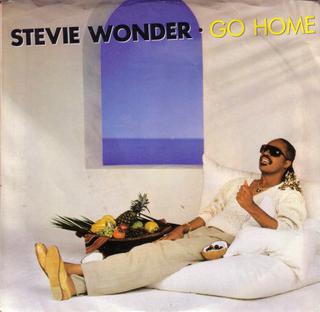
"Go Home" is a song by Stevie Wonder, released as the second single from his twentieth studio album, In Square Circle (1985). The song showcased the narrator's plea to a young woman to go home, though the girl tries to get the narrator to stay with her. In the US, the song peaked at #2 on the Billboard R&B chart and #10 on the Billboard Hot 100 and, to date, is Wonder's last song to reach the US top ten on the Hot 100. "Go Home" also topped both the Billboard dance chart and the Billboard Adult Contemporary chart.
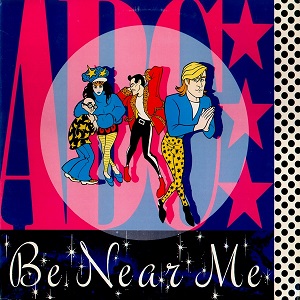
"Be Near Me" is a song by English new wave and synth-pop band ABC. It was released in April 1985 as the second single from their third studio album, How to Be a ... Zillionaire! It peaked at No. 26 on the UK Singles Chart in 1985, and was the only single from the album to reach the UK top 40. It was more successful in the United States where it reached No. 9 on the Billboard Hot 100. The song also went to number-one on the U.S. Hot Dance Club Play chart in September of that year, remaining on top for two weeks.

What a Feelin' is the second studio album by American singer-songwriter Irene Cara. Released on November 2, 1983, this album is a continuation of the work that Cara began with producer Giorgio Moroder on the soundtrack to the 1983 film Flashdance. The dance-pop song she co-wrote with Moroder and Keith Forsey for the film, "Flashdance... What a Feeling", went to number one on Billboard magazine's Hot 100 and foreshadowed the style of this album, which was unlike her R&B-heavy debut. Although Cara was more accustomed to composing music, she relinquished most of those duties to Moroder here and shifted much of her songwriting focus to lyrics.
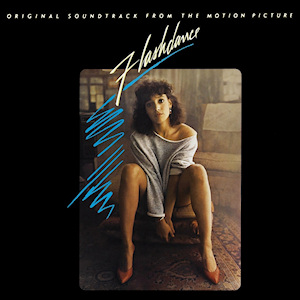
Flashdance: Original Soundtrack from the Motion Picture is the soundtrack to the 1983 film Flashdance, which tells the story of Alex Owens, a welder and exotic dancer who dreams of becoming a professional ballerina. The nightclub performances by Alex and her co-workers and other set pieces involving training and auditioning provided opportunities to present the songs that would make up the soundtrack album. The film's music supervisor, Phil Ramone, made selections that he felt were the best fit for their respective scenes, and composer Giorgio Moroder contributed additional tracks in the process of scoring the film. One of his contributions, "Flashdance...What a Feeling" by Irene Cara, was released as a single in March 1983, weeks before the film's April 15 release, and eventually spent six weeks at number one on the Billboard Hot 100.

"Take Your Time " is the debut single by the S.O.S. Band. It was released on March 18, 1980 as the lead single from the debut album S.O.S. through Tabu Records, three months before the album's release.
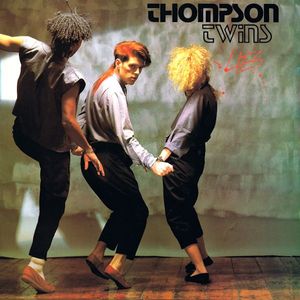
"Lies" is a song by the British band Thompson Twins. It was released as the first single from the album Quick Step & Side Kick, and the song peaked at number 67 on the UK singles chart. The single fared better in the United States, where it peaked at number 30 on the Billboard Hot 100 chart in the spring of 1983. Along with the B-side track "Beach Culture", "Lies" also spent two weeks at number one on the American dance chart in January 1983, becoming the band's second number one on this chart.

D.C. Cab: Music from the Original Motion Picture Soundtrack is the soundtrack to the 1983 film D.C. Cab. The producers selected artists for the album who were popular with a young, black audience, and the popularity of one of the film's stars, Mr. T, prompted the film's distributor to release the film four months earlier than planned. D.C. Cab performed poorly at the box office, and the soundtrack peaked at number 181 on the album chart in Billboard magazine.

"With You I'm Born Again" is a 1979 duet written by Carol Connors and David Shire that originated on the soundtrack of the 1979 motion picture Fast Break. It was performed by Motown recording artists Billy Preston and Syreeta Wright and became an international hit for the duo, reaching number four on the Billboard Hot 100 and number two on the UK singles chart.

"Why Me?" is a song written by Giorgio Moroder, Keith Forsey, and the song's performer, Irene Cara, that was the first official single to be released from Cara's 1983 album, What a Feelin', making it the follow-up to the songwriting trio's previous project for Cara, "Flashdance... What a Feeling". This new collaboration, however, was described as having more of a hard rock edge and had lyrics that conveyed the difficulties in a relationship.
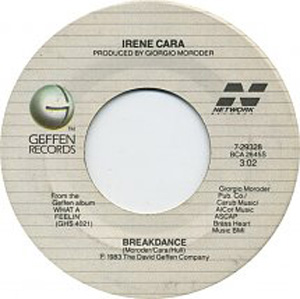
"Breakdance" is a song written by Giorgio Moroder, Bunny Hull, and the song's performer, Irene Cara. Moroder's obsession with the dance hit "Rockit" by Herbie Hancock fueled his composition of the music, and Cara was inspired by the street performers she saw growing up in the South Bronx to write lyrics about what was then called breakdancing. Released in March 1984, it was the third single that originated on her What a Feelin' LP and her first to make the top ten in the US since the album's title track went to number one almost a year earlier. "Breakdance" also charted in several other countries and had a dance remix that was also well received.

"Magnetic" is a song by American band Earth, Wind & Fire, released in November 1983 on Columbia Records as the first single from their thirteenth studio album, Electric Universe (1983). It reached No. 10 on the US Billboard Hot R&B Singles chart, No. 36 on the Billboard Dance Club Play chart and No. 23 on the UK Blues & Soul Top British Soul Singles chart. "Magnetic" also reached No. 16 on the Belgian Pop Singles chart and No. 18 on the Dutch Pop Singles chart.

"Automatic Man" is a song written by Michael Sembello, David Batteau, and Danny Sembello that was the first official single to be released from the 1983 album Bossa Nova Hotel by Michael Sembello. It reached number 34 on the Billboard Hot 100.

"The Dream " is a song written by Giorgio Moroder, Pete Bellotte, and the song's performer, Irene Cara, for the 1983 film D.C. Cab. Although not included on initial pressings of Cara's What a Feelin' LP, the decision to release the film four months earlier than originally slated prompted an arrangement for her album to be reissued with the song. A slightly different version was also included on the film's soundtrack album; an edited version was released on the 7-inch single, and the 12-inch single included a much longer dance remix.
References
- ↑ Hot Dance Club Songs, Billboard.com, issue date November 12, 1983
- ↑ Hot Dance Club Songs, Billboard.com, issue date November 19, 1983
- ↑ Hot Dance Club Songs, Billboard.com, issue date November 26, 1983
- ↑ Hot Dance Club Songs, Billboard.com, issue date December 3, 1983
- ↑ Hot Dance Club Songs, Billboard.com, issue date December 10, 1983
- ↑ Hot Dance Club Songs, Billboard.com, issue date December 17, 1983
- ↑ Hot Dance Club Songs, Billboard.com, issue date December 24, 1983
- ↑ Hot Dance Club Songs, Billboard.com, issue date December 31, 1983
- For weeks January 1—November 5, 1983, information taken from: Whitburn, Joel (2004), Joel Whitburn's Hot Dance/Disco 1974-2003, Menomonee Falls, WI: Record Research, ISBN 0-89820-156-X
- Some weeks may also be found at Billboard magazine courtesy of Google Books: 1980—1984.